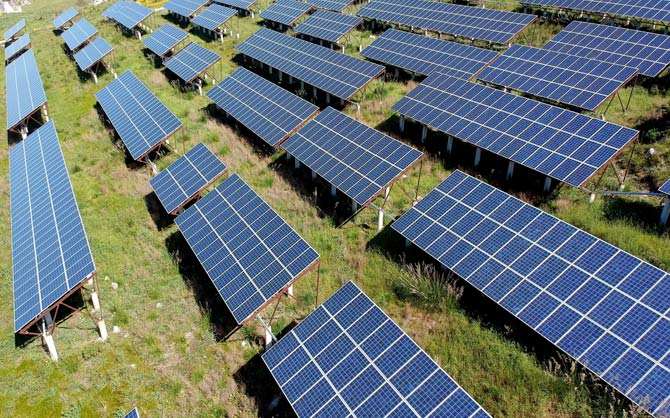Highlights
Highlights
New concession for the Gösgen hydropower plant for 70 years
The current concession for the Gösgen hydropower plant and the Winznau weir expires in 2027. Since the Winznau weir requires extensive renovation, the Swiss cantons of Solothurn and Aargau, the grantors of the concession, and Alpiq Hydro Aare AG, the concession holder, entered into negotiations regarding early renewal of the concession.
With the approval of the cantonal councillors Roland Fürst (canton of Solothurn) and Stephan Attiger (canton of Aargau), the concession came into force on 23 September 2020 with retroactive effect from 1 January 2020. The new concession applies for 70 years, i.e. until the end of 2089. Thus, the Gösgen hydropower plant will continue to make an important contribution to the environmentally responsible and climate-friendly production of power and the security of supply in Switzerland over the coming decades.
In the next few years, Alpiq will invest more than CHF 63 million in the Gösgen hydropower plant, in particular in the construction of the new Winznau weir. This includes around CHF 12 million for a total of 21 compensation measures. These measures significantly improve the environmental footprint of the hydropower utilisation at the Gösgen hydropower plant in line with the Swiss Federal Act on the Protection of Nature and Cultural Heritage (NHG).
The Gösgen hydropower plant was commissioned in 1917. Between 1996 and 2000, the engine house was completely rebuilt. The largest run-of-river power plant on the river Aare has an average annual output of 300 million kWh, which equates to the average annual consumption of around 75,000 households. The power plant utilises the gradient of the river Aare over a stretch of 14.5 kilometres. 93 % of this stretch runs through the canton of Solothurn, 7 % through the canton of Aargau. The concession fee is distributed accordingly to the two cantons.
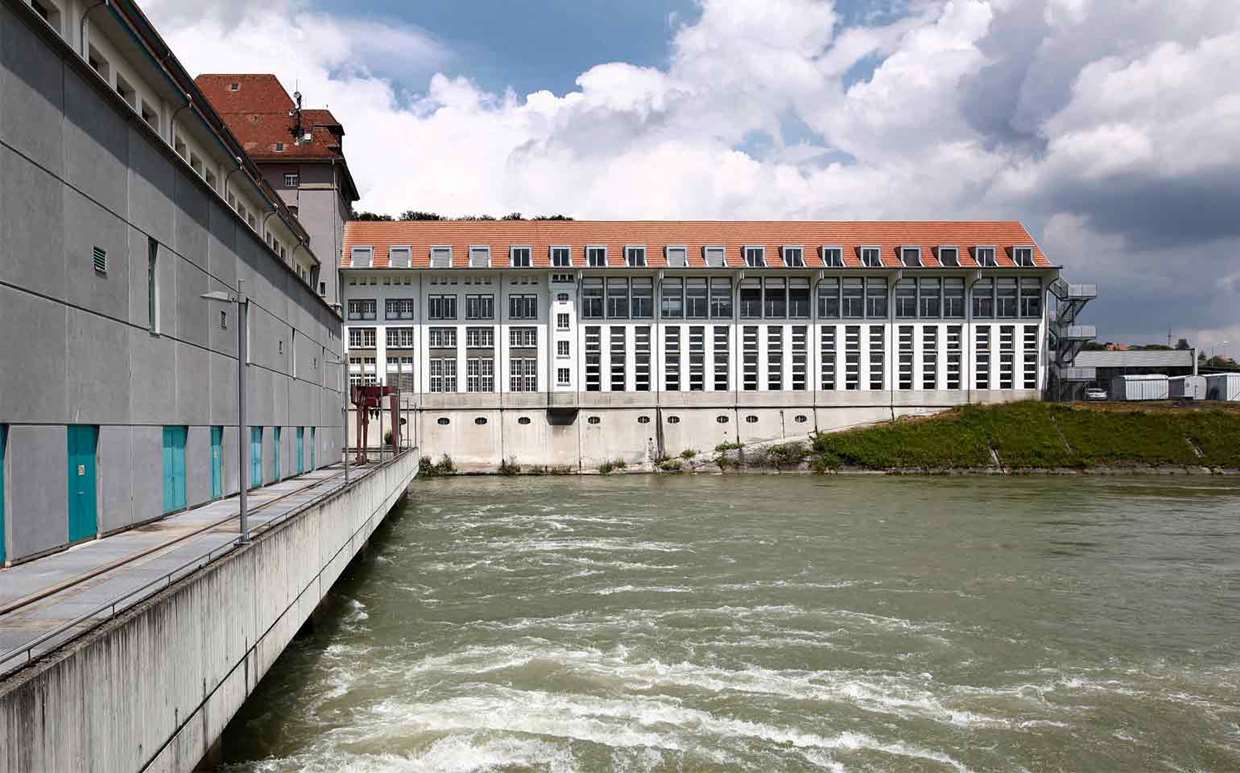
Expansion of the origination business in Finland and Norway
Alpiq is investing in its origination business and is expanding its customer business both in Oslo and at a new location close to Helsinki. The energy trade sector is becoming increasingly dynamic and complex and the production of power from new renewable energies, such as wind and photovoltaics, is increasing rapidly. The number of electricity producers is also growing continuously. For this reason, risk management, market access, direct marketing and the need for individual solutions is becoming increasingly important for producers and consumers alike.
Alpiq’s energy specialists will meet this growing customer demand in Finland and Norway even better in future. The aim is to further increase the market share in the Nordic countries. Customers benefit from the additional expertise in tailored offerings, market access and selling electricity from new renewable energies. Alpiq has been present in all major European markets for many years, including Norway, Sweden and Finland. Alpiq is expanding its origination expertise in these countries in line with its corporate strategy of placing greater focus on business customers.

Alpiq operates the largest electrolysis plant in Switzerland
The largest electrolysis plant in Switzerland for producing green, climate-friendly hydrogen is located at the Alpiq Gösgen hydropower plant. It was built by Hydrospider, a joint venture between H2 Energy, Alpiq and Linde Gas (PanGas). Water is separated into hydrogen and oxygen using only electricity that is produced on-site from 100 % hydropower. The plant has a capacity of 2 MW and produces hydrogen for commercial use in emission-free heavy goods transport. On 2 June 2020, the first special container filled with 350 kg of green hydrogen was transported to St. Gallen and is now available at a new hydrogen filling station.
Hydrospider’s 2 MW plant produces around 300 tons of hydrogen a year, which equates to the annual consumption of 40 to 50 trucks or around 1,700 passenger cars. The hydrogen is produced using renewable energy and is a central element in the emission-free mobility business model that Hydrospider is currently establishing with Hyundai Hydrogen Mobility (HHM) and the H2 Mobility Switzerland Association. The model was initiated by H2 Energy on a private-sector basis. As well as the production and procurement of green hydrogen by Hydrospider, it includes Hyundai fuel cell heavy-duty trucks, a plan to expand the filling station infrastructure and a commitment by logistics and transport companies to use fuel cell heavy-duty trucks in the future.
By 2025, 1,600 Hyundai fuel cell heavy-duty trucks will be on Switzerland’s roads thanks to this unique hydrogen ecosystem. The first fuel cell heavy-duty trucks were already delivered in October 2020. Their only emission is water. As a result, a sustainable, climate-friendly link between the energy and mobility sectors has become reality in the area of heavy goods transport.
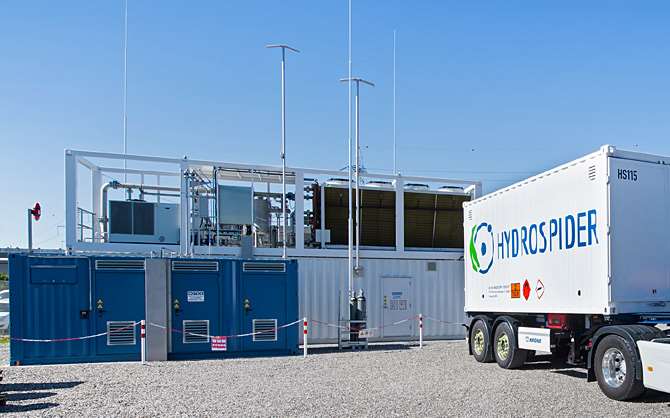
Photo: Jean-Luc Grossmann
Alpiq embarks on a new chapter of growth with its new CEO
The Board of Directors of Alpiq Holding Ltd. has appointed Antje Kanngiesser as the new CEO of the Alpiq Group. She succeeds André Schnidrig, who has resigned for health reasons. She holds a doctorate in law as well as an Executive Master of Business Administration from IMD Lausanne and has been Head of Group Markets & Services at BKW since 2017 and a member of the Group Executive Board of the BKW Group since 2019. After a year as head of the general secretariat and the legal services in 2014, she was Head of the BKW Group Management and a member of the extended Group Executive Board from 2015 to 2017. Antje Kanngiesser will take up her position as the new CEO of the Alpiq Group on 1 March 2021.
During her time at BKW, she drove forward the corporate transformation by realigning business models, digitalising energy sales and firmly establishing modern working methods. Before joining BKW, she successfully served in various management positions with the Alpiq Group and Energie Ouest Suisse (EOS). Antje Kanngiesser has both German and Swiss citizenship and lives in Murten together with her family.
Antje Kanngiesser: “I look forward to leading Alpiq into the next phase of its corporate history based on its well-established and focused strategy. Together, we will continue to face many challenges, but we will also be able to seize great opportunities in the European markets.” She is an outstanding executive with strong communication skills and excellent analytical abilities. She has a deep understanding of the energy industry, is familiar with the relevant business processes of an international energy company such as Alpiq and has extensive commercial expertise.
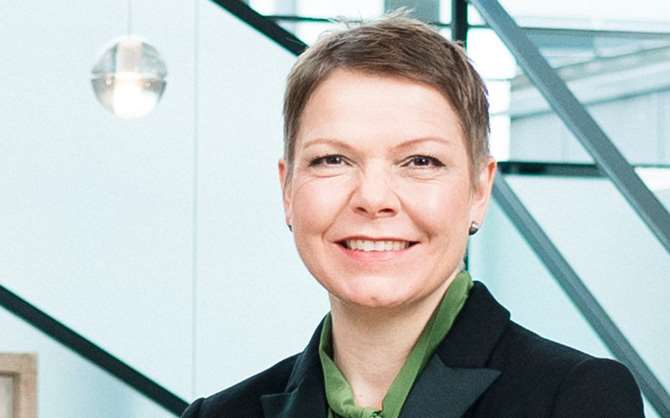
Grid synchronisation: successful tests in Nant de Drance
The first machine group at the new Nant de Drance pumped storage power plant was successfully connected to the high-voltage grid for the first time on 5 August 2020. The first synchronisation in the current test phase marks a major step on the journey to making the power plant fully operational. From the end of 2021, the flexible power plant with a capacity of 900 MW will make an important contribution to the security of supply.
Specialists have been testing the turbine-generator groups in the power plant cavern since March 2020. Synchronising the first machine with the high-voltage grid is a milestone on the way to commissioning the power plant. The grid connection tests are part of the commissioning process, which began in November 2019 when the intake valves were opened. The tests ensure that every component of the power plant meets the safety, quality and reliability requirements.
The shareholders of Nant de Drance SA (Alpiq’s share: 39 %) have invested around CHF 2.2 billion in the construction of the pumped storage power plant. This investment demonstrates a long-term vision as well as willingness to face the challenges posed by the future power supply. Depending on demand, the 900 MW power plant will be able to produce or store large quantities of electricity within a very short period of time. This exceptional flexibility is gaining in importance as power production is becoming increasingly volatile due to the expansion of new renewable energies and the growing demand for flexibility. The balancing energy provided by Nant de Drance can balance short-term differences between power production and consumption. The plant will make a decisive contribution to ensuring the stability of the European electricity grid and the security of supply within Switzerland.
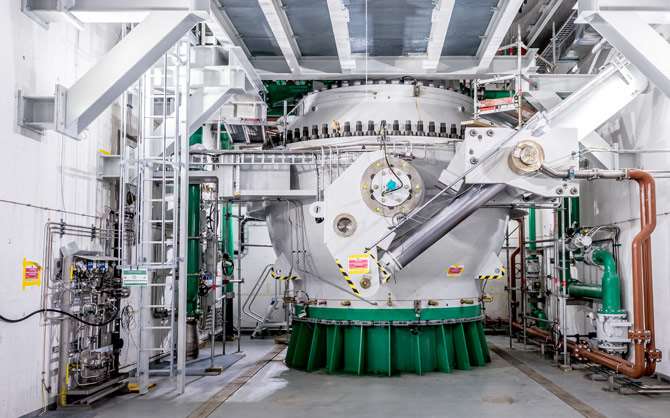
Largest battery storage unit in Switzerland prequalifies for secondary control power
Alpiq manages the most powerful battery in Switzerland on behalf of MW Storage Ltd. The battery prequalified for the provision of secondary control power on 24 September 2020. The 20 MW battery is located in Ingenbohl in the Swiss canton of Schwyz and contributes to the stabilisation of the electricity grid.
In addition to its own storage power plants, Alpiq’s flexibility portfolio contains an increasing number of smaller and larger third-party plants. In the third quarter of 2020, the most powerful battery in Switzerland was added to this portfolio, as a result of which the grid operator Swissgrid granted prequalification for the provision of secondary control power. Alpiq therefore strengthened its leading position in asset management for customers.
One of the main challenges of commissioning a battery storage unit is the interaction between the battery and the software; the battery only responds to the communication signals correctly and quickly enough if this interaction works. The status of the battery and schedules are automatically transmitted to the Trading department using artificial intelligence in order to procure or sell energy. Alpiq’s concept for ancillary services is fully developed and its software for managing decentralised pools is tried and tested.
Because there had not been a battery project of this magnitude in Switzerland before, close cooperation between the manufacturer, the owner MW Storage and Swissgrid was especially important. As the capacity of 18 MWh can be used for secondary control power, the partners are now planning to utilise the storage unit for primary control power. This is another step towards making the battery use as profitable as possible for MW Storage Ltd.
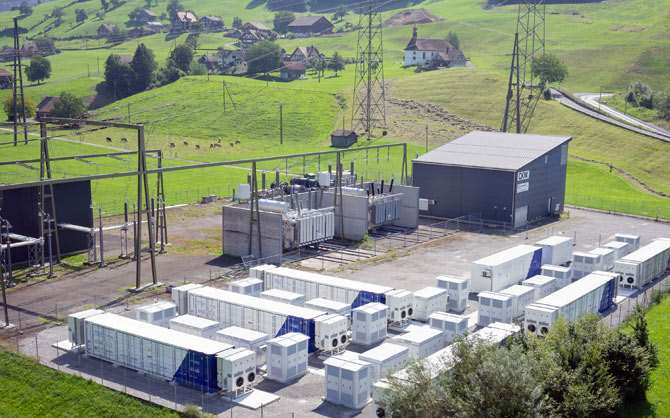
Power purchase agreement for the 50 MW Alizarsun solar project
Alpiq is further expanding its business in the area of long-term power purchase agreements (PPA) for renewable energies. On 24 September 2020, Alpiq – in a consortium with Solaer and Himin – entered into a long-term PPA for the 50 MW Alizarsun solar project.
The Alizarsun solar project is located in Paracuellos del Jalón (Zaragoza) in Aragón, one of the leading regions in Spain for the development of renewable plants. The contract will start in 2021 and run for the next ten years. As part of the PPA, Alpiq will sell the generated electricity on the market for renewable energies.
With the long-term power purchase agreements, Alpiq and its partners increase their planning security and mitigate market risks. Alpiq’s PPA solutions are tailor-made and take into account not only specific cost structures and geographical conditions, but also the growing customer requirements regarding risk management. In Spain, Alpiq has already signed long-term purchase agreements for over 300 MW of installed capacity.
Solaer is one of the most successful developers of photovoltaic plants in Israel. Its project pipeline comprises plants with a total capacity of around 1 GW. Himin was established in China in 2007 and has branches in Italy, Chile and Argentina. Himin develops, constructs and operates photovoltaic plants. In addition to its cooperation in Spain, the consortium is developing photovoltaic projects with a total capacity of 800 MW in Italy.
